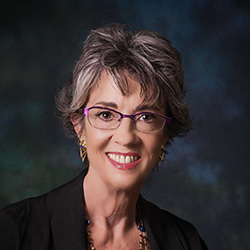By Robyn Stone
Providers of aging services have the power to change the lives of older adults and revitalize their communities, writes Robyn Stone.
As a researcher, I don’t have much occasion to attend ribbon-cutting ceremonies. But, when I accept invitations to celebrate projects I’m connected to, I never regret it.
What’s so great about a ribbon cutting? Pretty much everything.
In our field, ribbon cuttings represent a joyful celebration of a new venture that promises to offer housing or services to people who need and deserve them. That’s pretty great.
Ribbon cuttings also are a great way to publicly acknowledge the incredible behind-the-scenes work involved in transforming a good idea into a great program.
Finally—and maybe greatest of all—ribbon cuttings represent hope for the future. And we could all use a little of that.
I felt joyful, hopeful, and excited on April 11 when I attended a ribbon-cutting ceremony for Edenbridge PACE at Skyland Town Center in Washington, DC. The new Program of All-Inclusive Care for the Elderly (PACE) is the first of its kind in the District of Columbia. It is owned by two nonprofit PACE operators: Element Care, based in Lynn, MA, and Edenbridge Health, based in Boston. Edenbridge Health is principally responsible for operating the PACE program.
I was on the April 11 guest list because I served as an advisor to Edenbridge Health as it developed the PACE program now serving older adults who live in a distressed community at the southeast corner of the District of Columbia. Working closely with two long-time friends and colleagues—Dr. Stephen Gordon, Edenbridge’s CEO, and Dr. Alan Abrams, its chief medical officer—I’ve had plenty of time to identify what makes this project so unique and what LeadingAge members might learn from it. Here’s a brief rundown:
Designed by geriatricians. Stephen and Alan are both geriatricians who understand the lived experience of the frail, low-income older adult population. That understanding has shaped the Edenbridge program, which embodies seven core principles focusing on “understanding and serving the whole person, providing outstanding geriatric care, and strengthening community.”
Connected to housing. It’s no accident that many of Edenbridge’s Washington enrollees live and receive PACE services in senior housing communities that serve as anchor institutions in their neighborhoods. LTSS Center research shows that many senior housing residents live with multiple chronic conditions that would easily qualify them for a nursing home level of care. Edenbridge’s strong ties to senior housing put it in a good position to identify eligible PACE enrollees and to achieve economies of scale by serving groups of enrollees who live in the same housing community.
Supported by Friends: Before moving ahead with the Skyland Town Center project, the Edenbridge team spent hundreds of hours listening to local stakeholders during community-based focus groups and meetings. Judging from the testimonials featured on the organization’s website, the team has succeeded in developing trusted relationships with neighborhood residents and partners. One partner, Rev. Kenneth E. Curry, senior pastor of The Pennsylvania Avenue Baptist Church, sums it up best: “They’ve come to be friends with us first.”
Committed to Community Revitalization: I’m looking forward to seeing the long-term impact of the Edenbridge PACE program as it supports local efforts to revitalize a community that Rev. Curry says has “spent decades without affordable, comprehensive healthcare.” Edenbridge plans to help bring about that revitalization by increasing local employment opportunities and providing the neighborhood’s most vulnerable residents with better access to community-based services.
Rev. Curry maintains that Edenbridge PACE “will be life-changing for families.” If his prediction proves to be accurate—and I am confident it will—the lesson for the rest of us will be very clear:
Providers of aging services have incredible power to change the lives of older adults and revitalize the communities in which they live. It’s not easy work, but it is vitally important work. And it must begin now.

Robyn I. Stone, DrPH, is senior vice president of research at LeadingAge, and co-director of the LeadingAge LTSS Center @UMass Boston. Her widely published work addresses long-term care policy and quality, chronic care for people with disabilities, the aging services workforce, affordable senior housing, and family caregiving.
